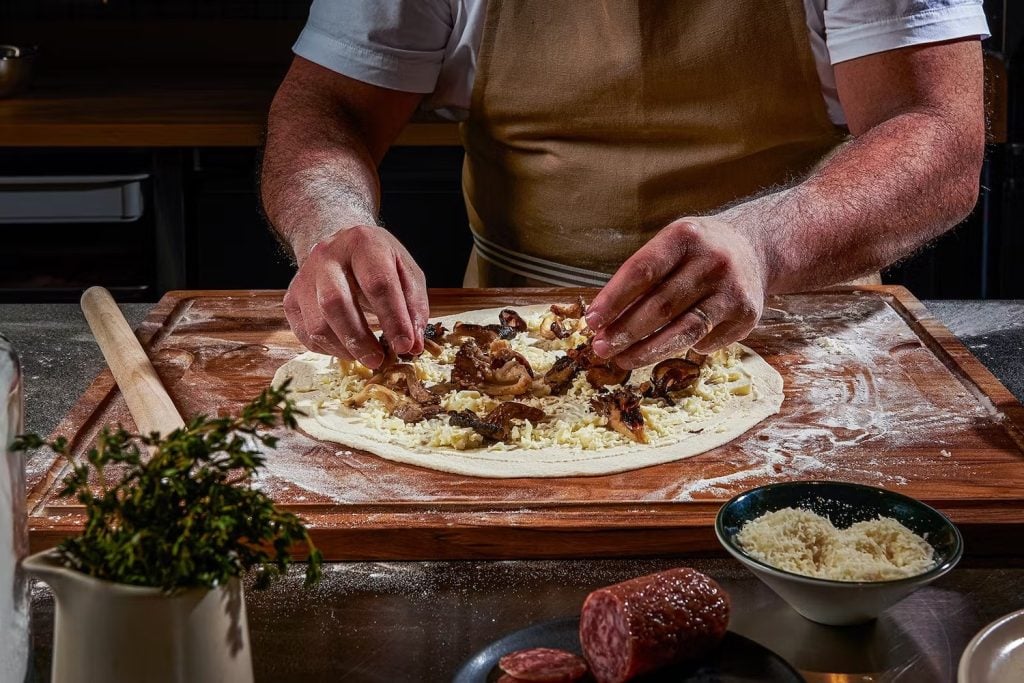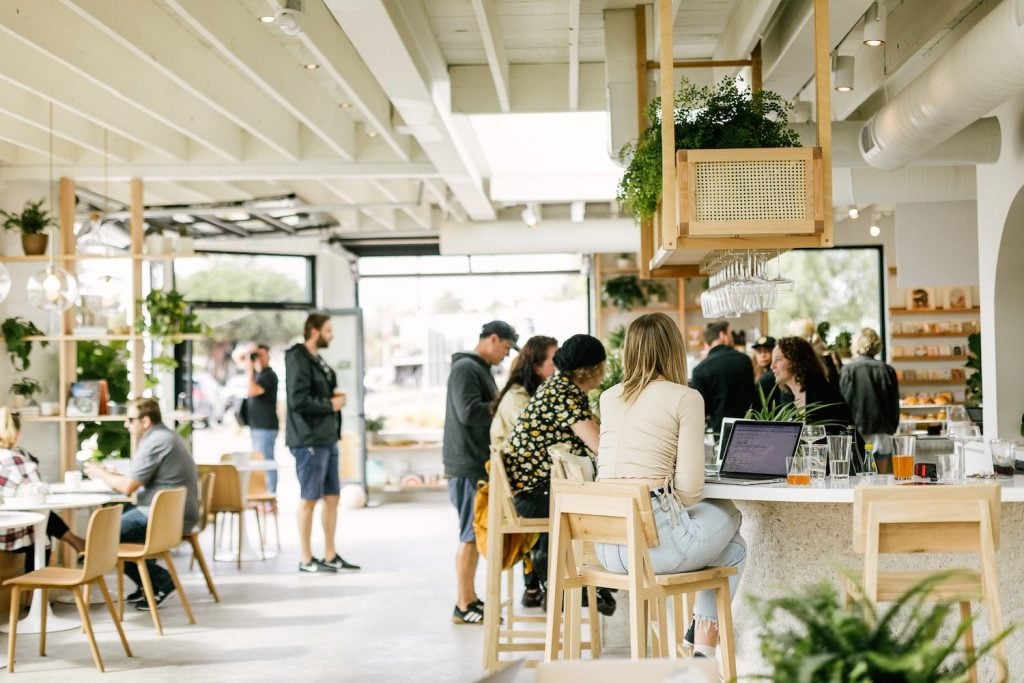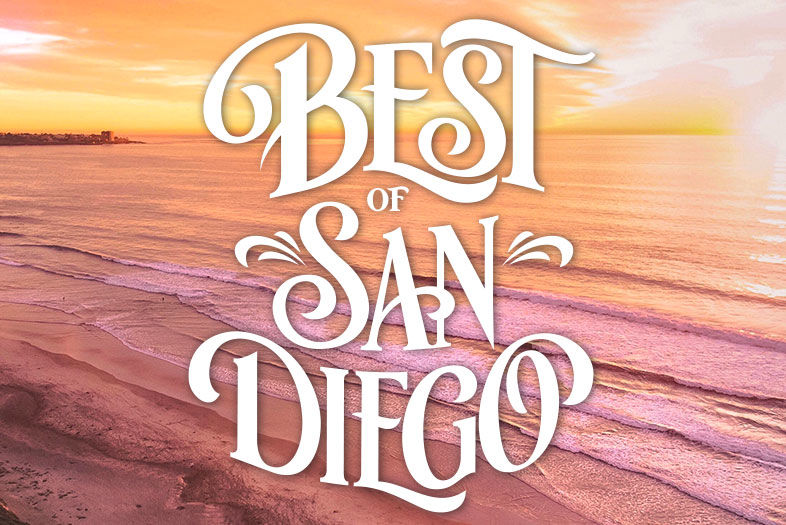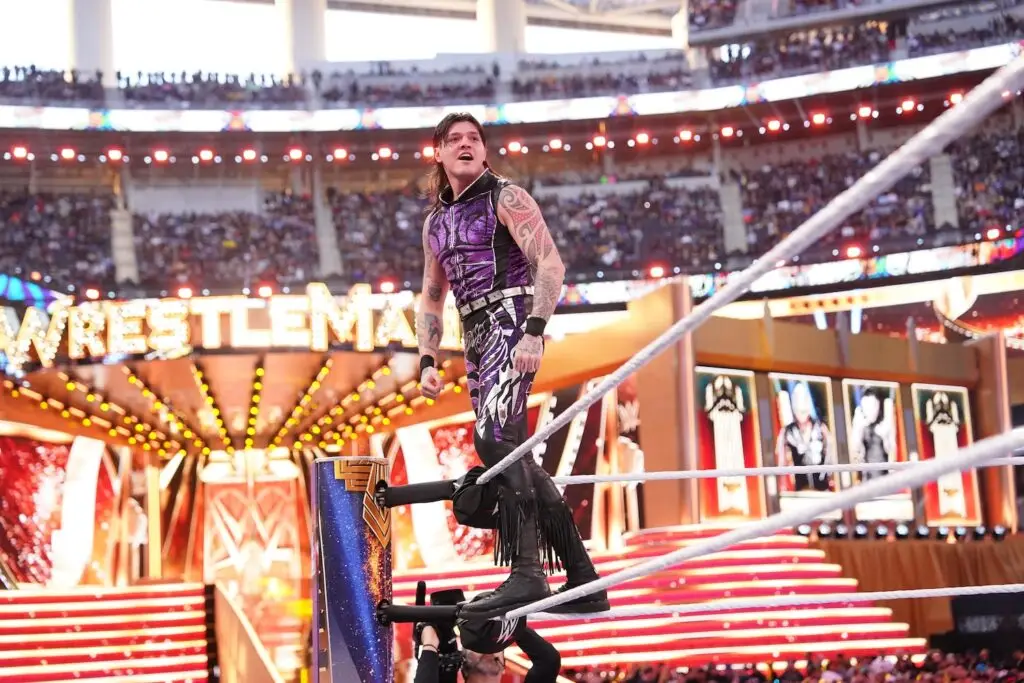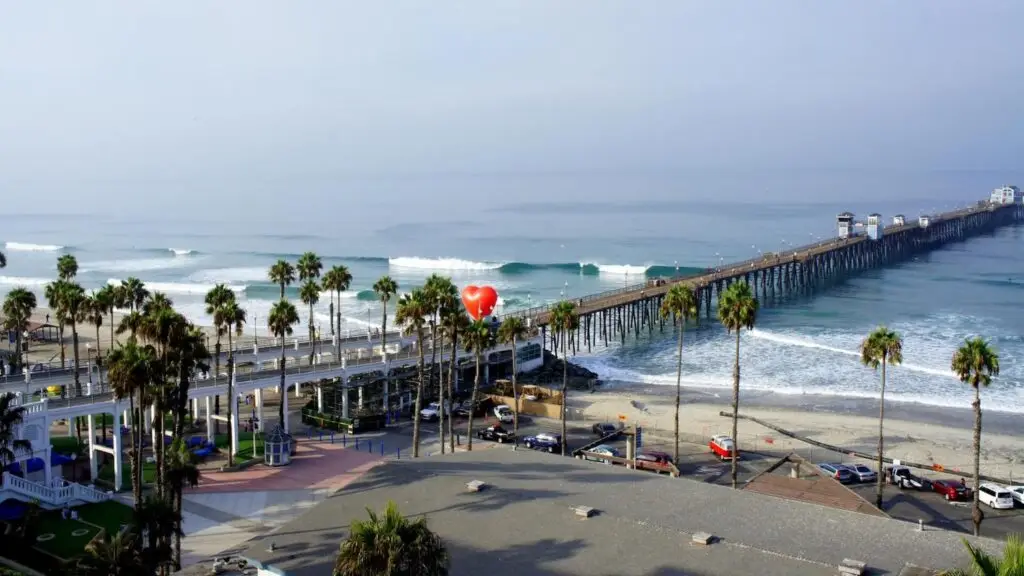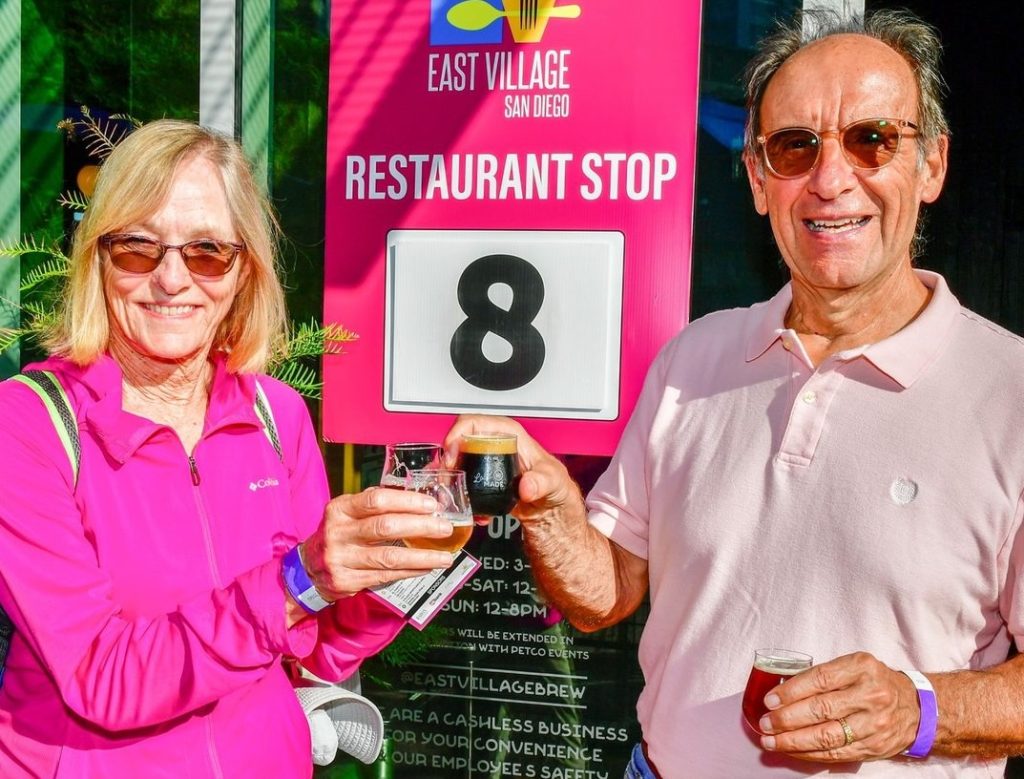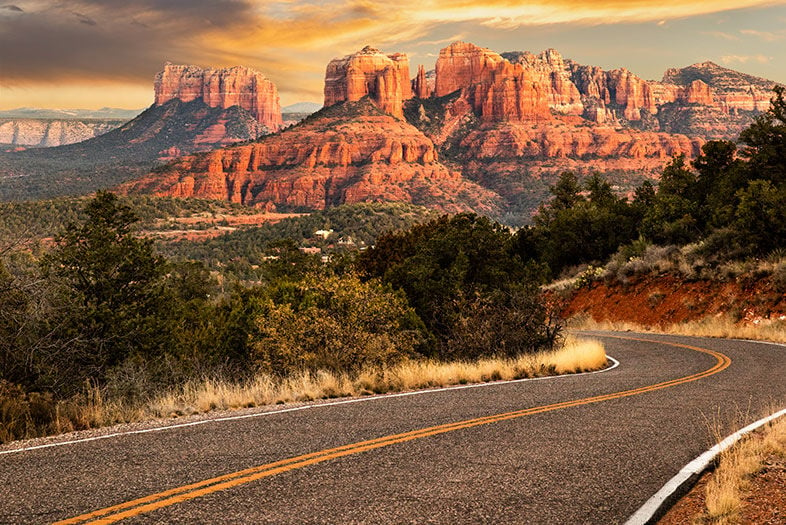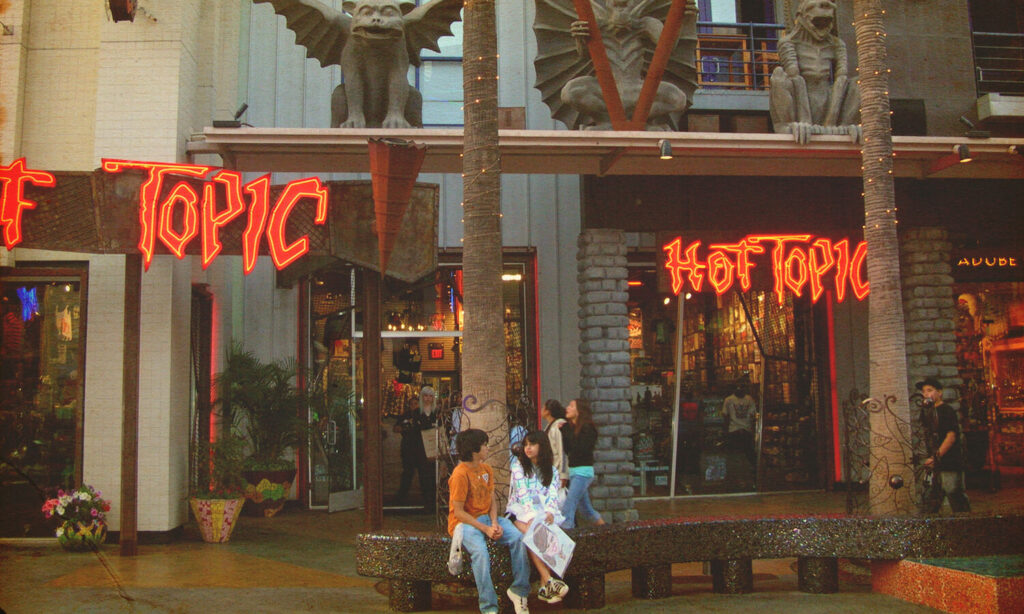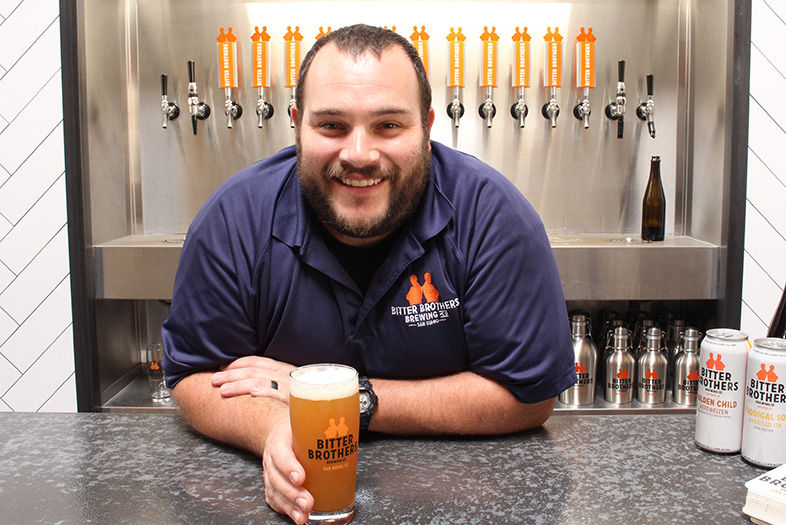There’s a lot of brewing talent in this town, which is good, because there are a lot of breweries in this town. One upside of a high brewery population density is that there’s pretty much always work for a good brewer who wants to brew—and there’s always opportunity for a brewer to move to a new venue and explore new responsibilities.
Tyler Tucker (who prefers being called Tucker) has been a part of the San Diego beer scene for some time now. He’s worked at Coronado, Societe, Mission, and Manzanita, but—until now—hasn’t really had the chance to run his own show. As the newest member of the Bitter Brothers brew team, Tucker (who replaces John Hunter) now gets to put his stamp on things. I sat down with him (and a pint of their always outstanding Brotherly Love Dunkelweizen) to chat about the challenges of managing a team, overseeing a mandate to grow, and inheriting a successful brewing strategy while still wanting to make it your own.
So you came to Bitter Brothers from Coronado Brewing, right?
Yes, I was at Coronado, on the island, for a little over a year and a half.
And you were brewing on that small system they have at the brewpub?
I kind of ran their research and development and one-off series. So I brewed their Brewery Series and any kind of one-off or pilot batches they wanted for collaborations.
And was it still set up like that little fish tank?
Yes! I had a little 10-barrel brewhouse behind the bar with three 10-barrel fermenters and three 10-barrel serving tanks, and then twelve 20-barrel tanks across the parking lot.
I first met Shawn DeWitt and Sean Farrell in that brewhouse.
Yeah! A lot of good brewers have gone through there.
Before Coronado you were where?
I was at Societe Brewing Company. I was there for four and a half years and that’s where I really actually started my brewing career. Before that I was at Mission and Manzanita, but not long enough to really count. I actually started at La Jolla Brewhouse with Travis [Smith] before he left. Then I went to Mission and helped out part-time with packaging and stuff like that—I did that on-and-off for about seven months before they decided they wanted to bring on full-time people instead. Then I was at Manzanita—I was there with Matt Patterson and Garry Pitman at the original space, which then became Finest Made Ales. I was there for about a year, brewing and kegging six days a week. At that point I sat down with my wife and we decided—if I was actually going to try to be in the industry and want to have it as a paid job—then I needed to go to brewing school. We decided I would do it, we pulled out the money, and—because I was still in touch with Travis—I knew about when Societe was going to open. I was able to coordinate a six-week Siebel brewing program and get a start at Societe with a scrub monkey job, cleaning tanks, scrubbing floors and kegs, graining out, and doing all the heavy lifting. Then that progressed and it was about six months before I got up on the deck. I was there for about four and a half years.
Would you say that, in addition to the Siebel program, Travis was kind of your brewing mentor?
Oh, absolutely. He still is. I still bounce ideas off him. I still call him. I still bring all my beers to him.
What’s the most important thing you think you learned from Travis?
Cleanliness and process. Being ultra-sanitary about everything you do and the process by which you do it. That makes or breaks a beer.
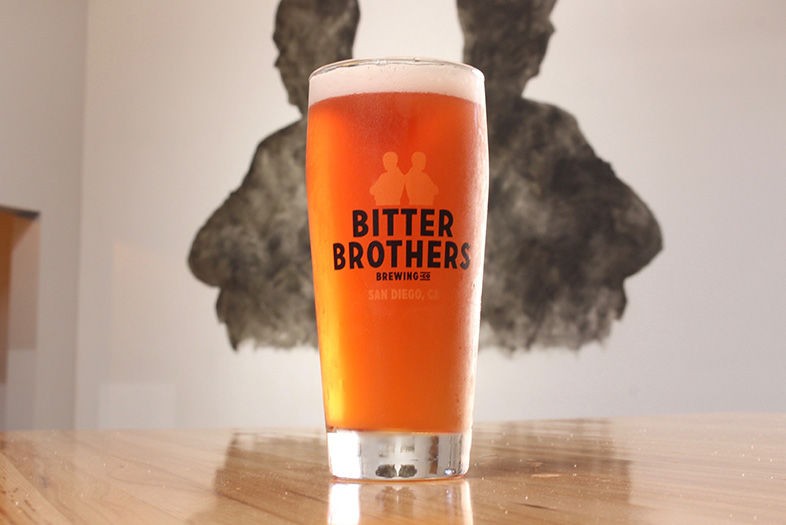
Have a Beer with Bitter Brothers Brewer Tyler Tucker
Family Tart Berliner Weisse with Cranberry | Photo: Bruce Glassman
Anything stylistically that you would say you picked up from him?
IPAs. Low bittering and large late-edition (hops) was probably one thing. And no crystal malts. Everything’s two-row. Those are just a few things I learned from both Travis and Doug [Constantiner]: Get rid of the crystal malt and let the two-row and hops be the guiding force in every beer.
After Societe you were at Coronado for about a year and a half and then you came here. What was it about Bitter Brothers that appealed to you most?
I learned about Bitter Brothers when they originally started, when Bill was in the developmental stage. I was at Societe, I was brewing, and he kept coming in. And, you know, Travis doesn’t usually talk to anybody for more than five or six minutes, but I noticed he had Bill for like two and a half hours, and I remember thinking that was so weird. Travis just doesn’t sit down and talk to anybody that long. I asked Travis who he was talking with and said, “Oh, that’s Bill. He’s opening a brewery.” And I thought, “Oh, good luck with that! There’s already 70 of them here.” But Bill kept coming in every Friday. And we all got to know him and it was during that time, about two years of coming in every Friday, that we all got to be friends. So, right when they were ready to open, about six months before, they hired John Hunter to be the head brewer and it was about four months after they opened that I left Societe to go to Coronado. Bill always says, “If I’d known you were looking I would’ve hired you!” But I really wasn’t looking, and the Coronado job allowed me to brew my own recipes and work in a pub (my wife and I had always talked about opening a brewpub) so I kind of wanted to see that side of it. And then it just happened that John was leaving here and I got let go at Coronado. Bill was the first call I made and I said, “I hear you need a head brewer” and he said, “I hear you need a job” and I said, “Yup!” So we sat down over some gin and tonics, hammered out the details, and here I am.
Now that you’re here, how do you hope to put your stamp on the brewing program?
Well, I hope to bring in a brewing style with fewer distractions in the beer. Part of that will be cleaner beer. More consistency. More West Coast flavor and my own touch on things. And I’m planning to help Bill present the public face of the company, which is something I’d like to do—get our brand out there some more. John did a great job getting us here, and now it’s my turn to bring us to the next step.
Are there any styles you’re hankering to do here that haven’t been done?
Well, John did a pretty good job with variety. At Societe we did Belgians, IPAs, and stouts. We also did the barrel-aged stuff and occasionally a saison, or something like that. Here we have the Dunkelweizen and the Aunt Joy, we have some saisons and some pilsners—there’s not anything that’s set. We have our core beers that are set, but the rest of the program allows us to try different avenues. We have an imperial red we’re going to be brewing, an oatmeal stout we’re going to be messing around with, so there’s a lot of variety.
The other component I guess you’ll be brewing toward is the Family Dinner program, right?
Yes, absolutely. Our beers are always going to be food-friendly and nothing’s going to be too crazy or over the top. So that will be fun, getting to play around with menus and recipes and also to brew with a bunch of other guys like Tom Nickel, who we’ll be doing a collaboration with.
You also mentioned your collaboration with Tyson Blake. Are there other collaborations you’re especially looking forward to?
I want to do a collaboration with Burning Beard. I know Brian Kelly, and Mike Maass, and Jeff Wiederkehr, and all them. I want to do one with Three Punks, I’ve been down there and know Ivan really well. Let’s see… who else? Benchmark. And I want to do one with Doug and Travis, but they don’t do them too often. I’ll probably do a collaboration with Doug Hasker (Gordon Biersch) here. Everything I know about lager brewing I know from him. Kelsey from North Park would be fun. Eppig would be fun.
Lots of possibilities! And lots of friends! What do you think is the best thing about being a brewer in San Diego today?
It’s a big family. Brewers jump around from place to place, but it’s still a family.
And you still feel that sense of family, even though there are so many more breweries in town?
Yeah. It’s harder now, because I don’t recognize as many faces, but it still feels like a close-knit family where brewers help each other. Everybody’s willing to help out and brewers don’t see each other so much as competitors as fellow brewers who are making beer in San Diego.
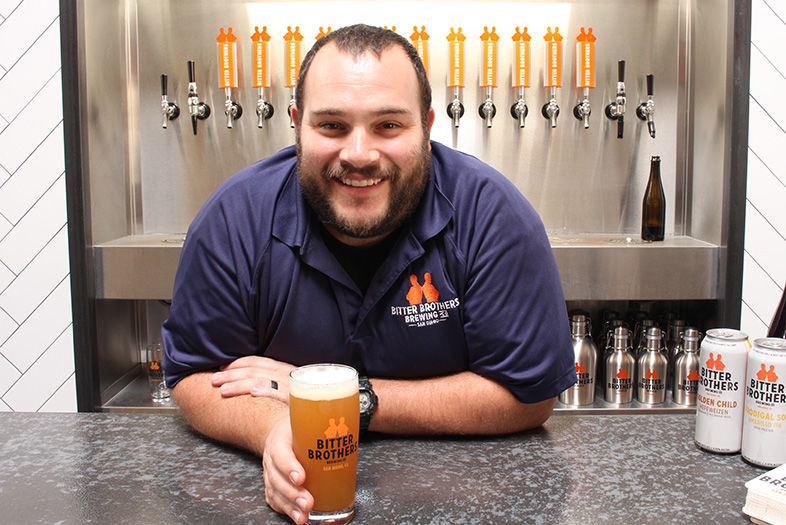
Have a Beer with Bitter Brothers Brewer Tyler Tucker
PARTNER CONTENT
Tyler Tucker has joined the Bitter Brothers clan as head brewer. | Photo: Bruce Glassman
